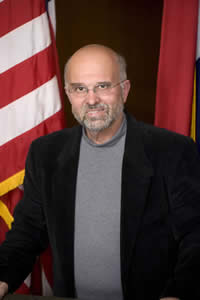COLUMBIA, Mo 11/5/14 (Analysis) -- A few weeks ago, this publication called Columbia's Proposition 2 -- higher development fees -- Dead on Arrival, while keeping readers informed about serious flaws in Proposition 1, the public safety tax.
Columbia voters last night agreed, strongly rebuking City Hall by twice denying city government the only thing that seems to matter anymore: more money.
But whether City Council members and the senior administrators they oversee will listen remains to be seen.
The new property tax for more cops (and firefighters) went down in a cataclysm of ballot-fueled flames, as heavy voter turnout -- over three times that of the April election -- defeated Proposition 1 15,516 (60%) to 10,425 (40%).
Higher development fees (Proposition 2) failed by nearly as large a margin, 14,137 (55%) to 11,488 (45%).
Repeatedly asking why this publication never endorsed Proposition 2, readers answered their own question.
They worried that all thought of fairness and equity had vanished at City Hall under the McDavid/Matthes administration.
Though I voted FOR Prop 2., I shared that concern. What was to guarantee those higher development fees would indeed be spent on new roads and streets? What was to guarantee city manager Mike Matthes' staff would even collect them? Their list of untrustworthy, downright sneaky behaviors has grown long and ugly over the past three years.
The Big Lie About Infrastructure. The ethical and legal violations used to push through the Opus student apartments, e.g. The Demolition Permit Hoax and The Illegally-Called Special Meetings.
The Opus Petitions, both ignored at City Hall.
The Lawsuits: Zim Schwartze. Police Officer Chris Kelley. And.Opus.Again.
The long, lonely journey of Bill Weitkemper, fighting for utility bill equity. Public Works director John Glascock's push to demolish historic homes on Providence Road.The ongoing infrastructure debacle.
The $145 million in cash and cash equivalents, stockpiled in City Hall's "Unrestricted" financial accounts, which this publication has called a "slush fund."
In the words of a friend, it's a constant "drip, drip, drip" of bad news with a single message: WE CAN'T TRUST CITY HALL.
Some City Council members, however, still don't get it. "I don't believe you," Third Ward Councilman Karl Skala told this writer at last night's Prop. 2 watch party, after fretting about how money for new infrastructure would materialize without higher development fees.
Start with the $74 million in the Water and Light Utility's "Unrestricted" account, I insisted. The City Charter mandates it be spent three ways:
1) To increase the General Fund, which pays for police and firefighters
2) For a "Depreciation Fund" to replace aging infrastructure3) To reduce consumers' utility bills
The city isn't doing ANY of these things, I said, and it hasn't in the 17 years I've lived here.
"I don't believe the money is there," Skala said. City finance director "John Blattel said those 'unrestricted funds' are restricted."
That's the same John Blattel whose assistant, Lynn Cannon, suffered a meltdown under simple budget questions from the Council.
"'Believe' has nothing to do with it," I said to the Councilman. "Just read the financial report. The money is not restricted at all. All the restricted funds are fully accounted for." I chaired the City of Columbia Finance Commission for a few years, so I'm not without intimate knowledge of the city's financial reports.
"I don't believe you," Skala said again, to which I replied, "Blattel is bullshitting you, and you're buying it."
Fourth Ward Councilman Ian Thomas echoed Skala's thoughts, calling the city's financial reports "very complex. I've spoken with John Blattel and he assures me...."
They don't believe anything Bill Weitkemper tells them either, so I'm in good company. And they're already planning another push for higher development fees.
*Sigh*
Sidebar
Mobile Menu

 The Columbia Heart Beat
COLUMBIA, MISSOURI'S ALL-DIGITAL, ALTERNATIVE NEWS SOURCE
The Columbia Heart Beat
COLUMBIA, MISSOURI'S ALL-DIGITAL, ALTERNATIVE NEWS SOURCE

04
Wed, Mar
 McDavid/Matthes administration has lost our trust
McDavid/Matthes administration has lost our trust 